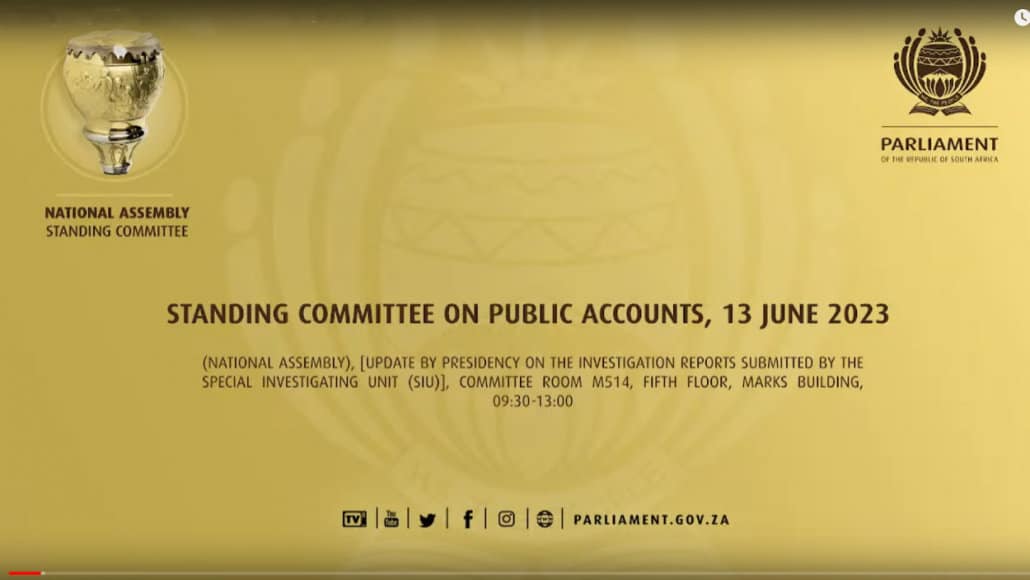The parliamentary Standing Committee on Public Accounts (Scopa) is monitoring the progress of several investigations that originated from the Presidency and from the Zondo commission respectively.
On 13 June the committee heard Andy Mothibi, head of the Special Investigating Unit (SIU), and Khumbudzo Ntshavheni, the minister in the Presidency, giving an update on the status of completed investigation reports submitted by the SIU. This follows on the committee’s conclusion that once SIU investigations, which are conducted through presidential proclamation, are closed it needed to hear from the Presidency as the originator of such proclamations and the oversight body for recommendations.
Having identified gaps in the processing of SIU reports in late 2021, Scopa became concerned about consequence management and in cases where there was no implementation of the SIU’s recommendations, about fruitless and wasteful expenditure. The committee’s view was that SIU reports should be implemented timeously and correctly.
Accordingly, it is working on the development, with the Presidency, of a matrix for the purposes of processing reports to ensure that wherever a report is submitted to the affected department, entity, or municipality, it was or will be implemented. The meeting was to inform the committee about progress in development of that matrix.
Ntshavheni conceded that implementation of the SIU reports was not moving at the pace that President Cyril Ramaphosa would like. The matrix development phase involved compiling a list of all SIU reports, where it was noted that some outstanding reports date back to 2001.
The Presidency and the SIU are working together to assess the progress in terms of implementation. The reports are to be categorised into provinces, and into local and district municipalities – the priority at this stage would be provinces. The Presidency would receive progress reports from the provinces, with implementation timeframes where possible, and would also assess the application of consequences.
The second phase, Ntshavheni said, is the pilot and is expected to conclude in August. This involves developing the pilot system, the data and technology platform, and the processes and procedures for the monitoring of referrals. These are under way, she added. In terms of referrals, the Presidency was in the process of sending follow-up correspondence to departments, municipalities, organs of state, and others who have received reports and recommendations from the SIU. The Presidency will analyse the implementation status, said Ntshavheni, and give feedback to Scopa.
Mothibi conceded that various state institutions owe the SIU a “significant amount” of money – around R986-million, said Hlengwa, asking Ntshavheni to share that figure with her Cabinet counterparts.
Consequently, the SIU has implemented a debt recovery project and would send the project plan to Scopa, as well as updates on an ongoing basis. The plan involved approaching the institutions that owed it money, reminding them of the investigation progress reports which they had received, so their CFOs could scrutinise the amounts owing. Once the state institution was satisfied, the SIU would establish a timeline for payment, and if no payment was forthcoming by the deadline, would escalate the matter to the Presidency and the minister of Justice and Correctional Services, asking for intervention. Such matters might go to Cabinet as well, Mothibi added.
“We would like to see accountability at that level so that money could be paid back,” he said.

